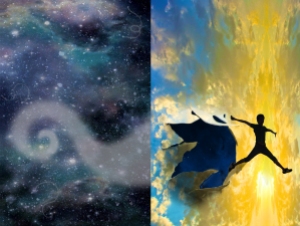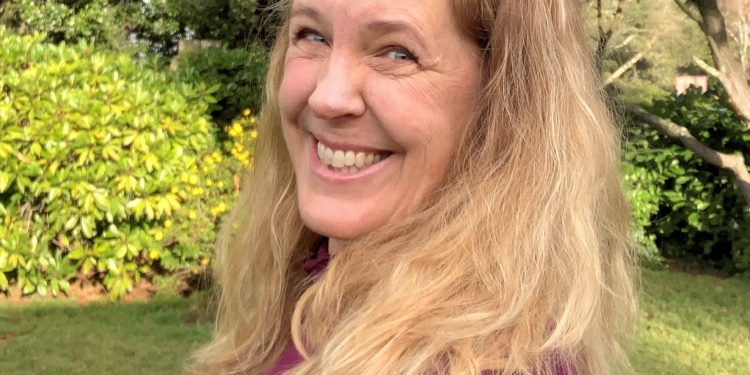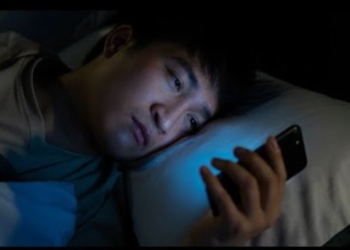
Have you ever wished you could jump into another world–another reality? Maybe you already have!
There is an unspoken assumption that we all agree that there exists one consistent set of true historical events–and therefore can expect that all our individual memories ought to correspond to this singular, objective reality. That's an unspoken assumption, and it's not really questioned. We tend to expect that all of our individual experiences and memories map onto that one, singular, objective reality. But what if that assumption is not true?
What if we exist within a holographic multiverse of ever-shifting realities, in which we sometimes find that rather than one fixed set of historical facts, we can find ourselves remembering something different from what official historical–culturally correct–records suggest?
If we do exist within something like a holographic multiverse of ever-shifting realities, we could expect to witness what we now know as the Mandela Effect. The Mandela Effect is the phenomenon where we actually do remember foods such as Haas avocados, and Stouffer's Stovetop stuffing, for example. I live in California, and I always pronounced the name of these California avocados as “haaas” and I would have pronounced the word “hass” if that was how it was spelled, but I didn't do that because it wasn't spelled that way. And now, it's supposedly always been spelled “Hass” avocados. With Stovetop stuffing, that's a case where I clearly remember the TV commercials that very clearly stated this popular product was Stouffer's stovetop stuffing, but now supposedly it's always only and ever been Kraft stovetop stuffing.
 And, it's important to point out that if we are living in a holographic multiverse, as I suggest in my book, Quantum Jumps, we could occasionally expect to witness dramatic changes–such as witnessing ourselves or others undergo spontaneous remissions from injuries and illnesses.
And, it's important to point out that if we are living in a holographic multiverse, as I suggest in my book, Quantum Jumps, we could occasionally expect to witness dramatic changes–such as witnessing ourselves or others undergo spontaneous remissions from injuries and illnesses.
For those of us witnessing reality shifts, quantum jumps, and the Mandela Effect, there is no need to provide “extraordinary evidence,” since those of us who are experiencers are not simply making “extraordinary claims,” but rather are simply sharing the facts of our personal experiences. Thousands of first-hand case studies of these observations have been documented with dates, geographic locations, first-hand reports, and commentary since 1999 on the RealityShifters website. Our ‘evidence' exists in our awareness–in the form of qualia, which is associated with the so-called “hard problem” of consciousness. How can you prove the concept of our unique, subjective experiences of consciousness–and reality–that we see in qualia? This is called a hard problem, because it is not a matter that can be easily translated to materialistic form. Similarly, we cannot prove the concept of the Mandela Effect, since it is a similarly hard problem.
As widespread as the assumption of a singular objective reality is, it directly conflicts with the idea from quantum physics that “quantum physics prohibits a single history,” as well as some recent quantum physics experimental findings that two observational devices at the same place and time can literally observe two different subjective realities. Also, experience of the Mandela Effect is gaining traction and gaining ground.
Quantum Physics Prohibits a Single History
The purpose of the science of physics is to understand how the universe behaves by studying the behaviors of matter and energy through space and time. Through such scientific study, physics has found some truly paradigm-shifting principles in quantum physics.
Physicists Stephen Hawking and Thomas Hertog ca-authored a paper in 2006, claiming that the Universe has no singular or unique beginning. Hertog states, “Quantum mechanics forbids a single history.” Hawking and Hertog referred to their theory ‘top-down' cosmology, because instead of focusing primarily on seeking a fundamental set of initial physical laws under which the cosmos unfolded, it starts ‘at the top,' with what we see today, and then works backwards to see what the initial conditions must have been.
The Observer's Perspective Effect
C. Brukner's 2019 paper described recent physics research experiments showing that two observational devices set up at the same place and set to make and record observations at the same time can–and sometimes do–make very different observations. When we see how this physics experiment challenges objective reality, we see experimental results providing validation that we can expect to sometimes witness alternate histories from what others observe. And this is exactly what we are observing when we notice reality shifts, quantum jumps, and the Mandela Effect.
The ‘Hard Problem' of Consciousness
The hard problem of memory has a precedent in the so-called ‘hard problem of consciousness,' because it delves into areas that materialist science based on material realism cannot adequately address or describe. This hard problem has to do with why and how we have qualia, or first-person experiences that feel like something. This is referred to as a ‘hard problem' in contrast to such ‘easier' matters of explaining various cognitive functions including: learning, memory, verbal communication, and perceptual integration.
What I love about the so-called ‘hard problem' is that it reminds me of the philosophical question, “Why is there anything at all?” By going directly to contemplate the idea of nothingness–and somethingness–we find ourselves contemplating a cosmos outside Time and Space. What might exist in such imagined realms? When I imagine what lies outside of time and space, I get a sense that there exists a sense of existence in the form of wisdom of being–the inspiration behind knowledge and meaning. We gain a sense of our true selves in the form of pure consciousness.
How can we Recognize Adjacent Realities?
Returning to the original question: What if you want to jump into another world? Maybe you already have! Once we recognize that we indeed likely have jumped into other worlds, other realities–how can we learn to recognize when we are next to these adjacent realities? We can be quite close to other possible realities in every moment.
You can ask yourself how you would feel when you are adjacent to another reality? What are the kinds of qualia–the internal consciousness, “hard problem” stuff that can't yet be fully recorded in accordance with methods and practices that are part of materialistic science. There is no way to objectively document or measure such experiences, because they are so uniquely individual to each of our experiences.
But the good news is that you can tell when you are adjacent to another possible reality. Just as you can tell when something good is cooking in the other room, because you can smell it–similarly, you can feel and sense when there is a good reality adjacent to your own.
And if you sense that there isn't yet any such good reality, then you can change your internal emotions and energies to make yourself much more positive. You can feel gratitude, and feel grateful. You can feel reverence, and choose to experience Revhumanism (rather than Transhumanism). You can become aware of the amazing opportunities in every moment, as you keep asking, “How good can it get?” and you can keep finding out. This works even when life is as chaotic as it sometimes gets, such as during this pandemic year of 2020 going into 2021.
Acknowledging our ability to make different observations from different perspectives, we do well to remember to keep asking, “How good can it get?” Let's find out together!
. . . . . . . . . . . . . . .
And I invite you to watch the companion video to this blog at:
___________________________
 Cynthia Sue Larson is the best-selling author of six books, including Quantum Jumps. Cynthia has a degree in physics from UC Berkeley, an MBA degree, a Doctor of Divinity, and a second degree black belt in Kuk Sool Won. Cynthia is the founder of RealityShifters, and is president of the International Mandela Effect Conference. Cynthia hosts “Living the Quantum Dream” on the DreamVisions7 radio network, and has been featured in numerous shows including Gaia, the History Channel, Coast to Coast AM, One World with Deepak Chopra, and BBC. Cynthia reminds us to ask in every situation, “How good can it get?” Subscribe to her free monthly ezine at:
Cynthia Sue Larson is the best-selling author of six books, including Quantum Jumps. Cynthia has a degree in physics from UC Berkeley, an MBA degree, a Doctor of Divinity, and a second degree black belt in Kuk Sool Won. Cynthia is the founder of RealityShifters, and is president of the International Mandela Effect Conference. Cynthia hosts “Living the Quantum Dream” on the DreamVisions7 radio network, and has been featured in numerous shows including Gaia, the History Channel, Coast to Coast AM, One World with Deepak Chopra, and BBC. Cynthia reminds us to ask in every situation, “How good can it get?” Subscribe to her free monthly ezine at:








![Charles Eisenstein: The Illusion of Separation [2-min video]](https://consciouslifenews.com/wp-content/uploads/2024/02/the-illusion-of-separation-350x250.jpg)





